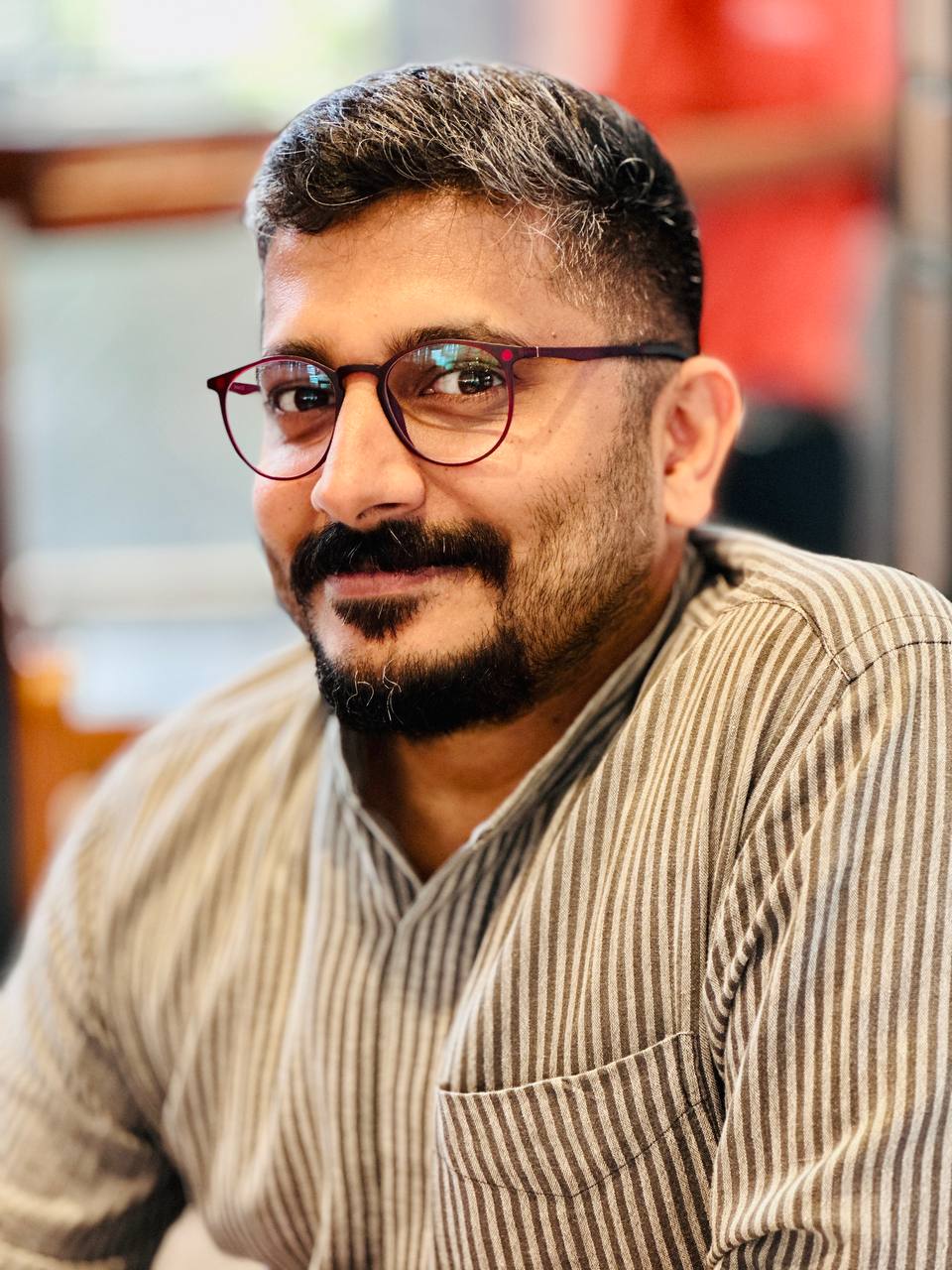Researcher of the Month, October 2023: Manoj Thekkepattath Parameswaran

"Manoj Thekkepattath Parameswaran is a PhD candidate in Theology and Religious Studies at the University of Leeds and a member of the Centre for Religion and Public Life. His research focuses on intersections of religion and development in India."
Tell us a little about your ‘research journey’ – how did you get to where you are right now?
I was born into a family and community deeply immersed in the Hindu religion in Kerala, India. Our livelihood was intricately woven into the daily rituals conducted at the temple in our hometown. It was a place where tradition and spirituality converged. My early education happened in a school administered by a spiritual organization, an institution where both of my parents served as Sanskrit teachers. This environment fostered an upbringing where religion was not just a passive activity but an integral part of our everyday lives.
During my formative years, I found myself consistently curious and often bewildered by the extent to which religion influenced our personal and societal choices. This early fascination spurred me to ask probing questions about the many facets of religion. These inquiries gradually evolved into a fundamental aspect of my academic exploration into the intersection of religion and society.
My academic journey in Sociology further ignited my interest for exploring the intricate relationship between religion and development. It enabled me to define my research enquiry into the nuances of how religion influences our decisions in life, shapes social equity, and plays a significant role in addressing various pressing aspects of development in our modern world.
Who, or what, sparked your interest to work on your particular research area?
On a personal level, the extensive and insightful conversations I had with my father regarding religion, rituals, and caste, significantly influenced the development of my research interests. His wisdom and guidance played a pivotal role in shaping my academic journey, providing invaluable insights and perspectives that continue to resonate with me.
Furthermore, my research trajectory received a crucial boost when I had the privilege of consulting with Dr. R. Santhosh, an Associate Professor at the Indian Institute of Technology (Madras) in India, that served as an early catalyst to refine my thoughts on my current research project. As my academic pursuits evolved, I had the invaluable opportunity to engage with Prof. Emma Tomalin, who is my primary research supervisor and a distinguished scholar on Religion and Global Development at the University of Leeds. Interactions with Prof. Tomalin proved instrumental in defining the scope of my research area and equipping me with the ability to pose pertinent questions as part of my doctoral studies. Her mentorship and expertise are instrumental in guiding me toward a more comprehensive and profound understanding of my chosen field of study.
What are you currently, or about to start, working on?
I am about to begin the second year of my PhD at the University of Leeds that explores the role of Mata Amritanandamayi Math, a particular Faith Based Organization (FBO) from Kerala in the development/humanitarian projects in India. I am broadly interested in understanding the differences such FBOs make in the development discourses and practices - in comparison with secular aid agencies, including the government’s. At the moment, I am preparing to start my fieldwork and data collection for this PhD project.
In what way(s) do you feel your research examines the role of religion in public life and the relationship between the two?
My research explores the role of religion within the context of India’s development. In India - deeply rooted in diverse religious traditions - various dimensions of religion seamlessly intersect with everyday public affairs. One such dimension is the caste system, deeply entwined with religious categorizations, which plays an undeniable role in determining people's access to resources and social acceptance. This, in turn, significantly influences the country's overall development trajectory.
Moreover, the rise of Hindu nationalism and the troubling surge in hate-driven incidents against religious minorities in recent times are poised to shape India's future direction towards achieving the sustainable development goals. These developments underscore the critical importance of understanding how religion influences public life and decision-making processes.
In this context, my research focuses on faith-based organizations, with a particular emphasis on one of the most prominent and impactful entities, Mata Amritanandamayi Math. This organization integrates spirituality and developmentalism, offering a unique lens through which to examine the role of religion in development. Mata Amritanandamayi Math has consistently engaged in humanitarian responses during disasters and has spearheaded various development projects, making it a compelling case study of how religion and development are inextricably intertwined.
Through my research, I seek to uncover the broad-reaching impact of religion on social life in India, with a specific emphasis on the vital role played by faith-based organizations.
